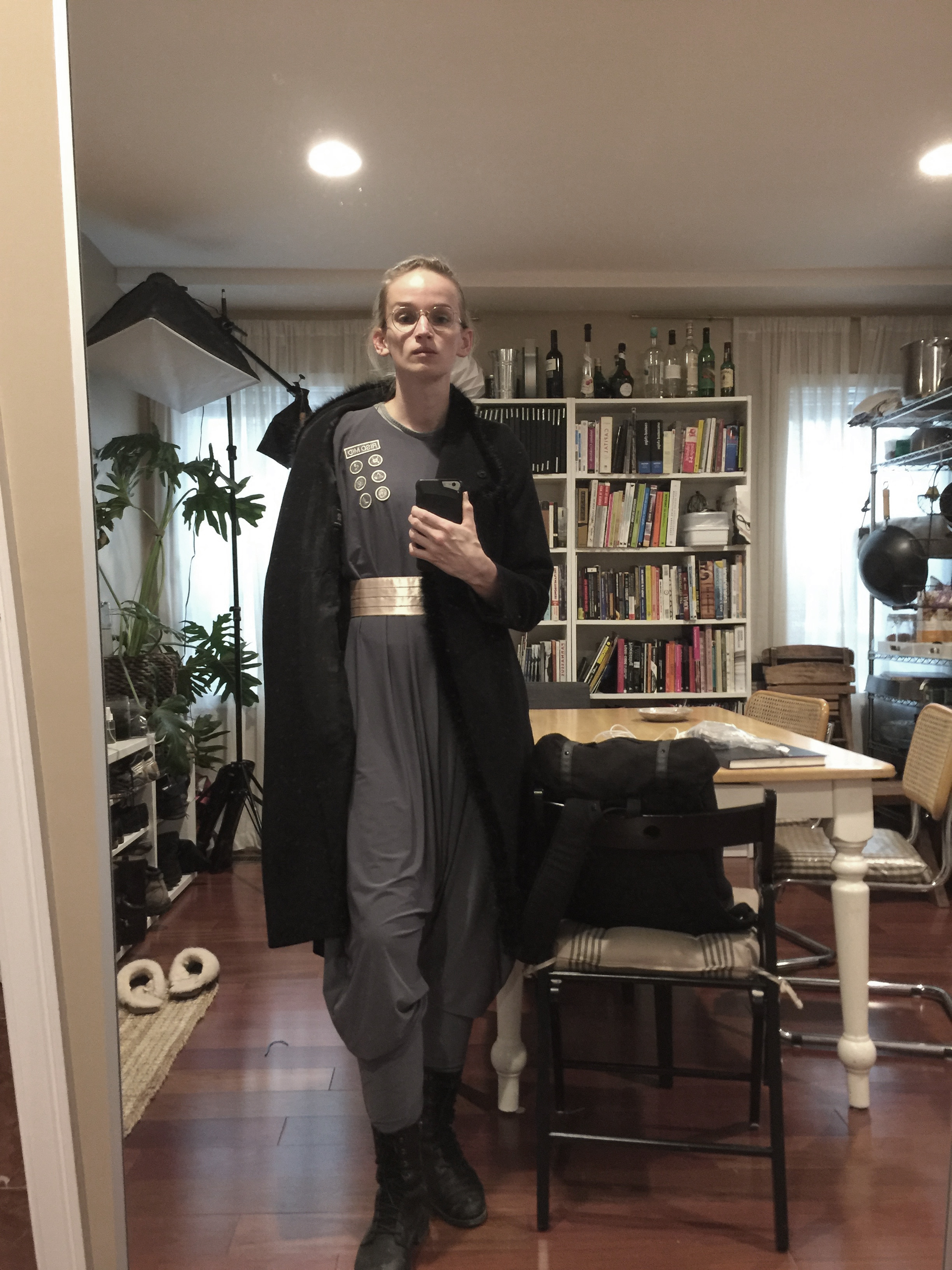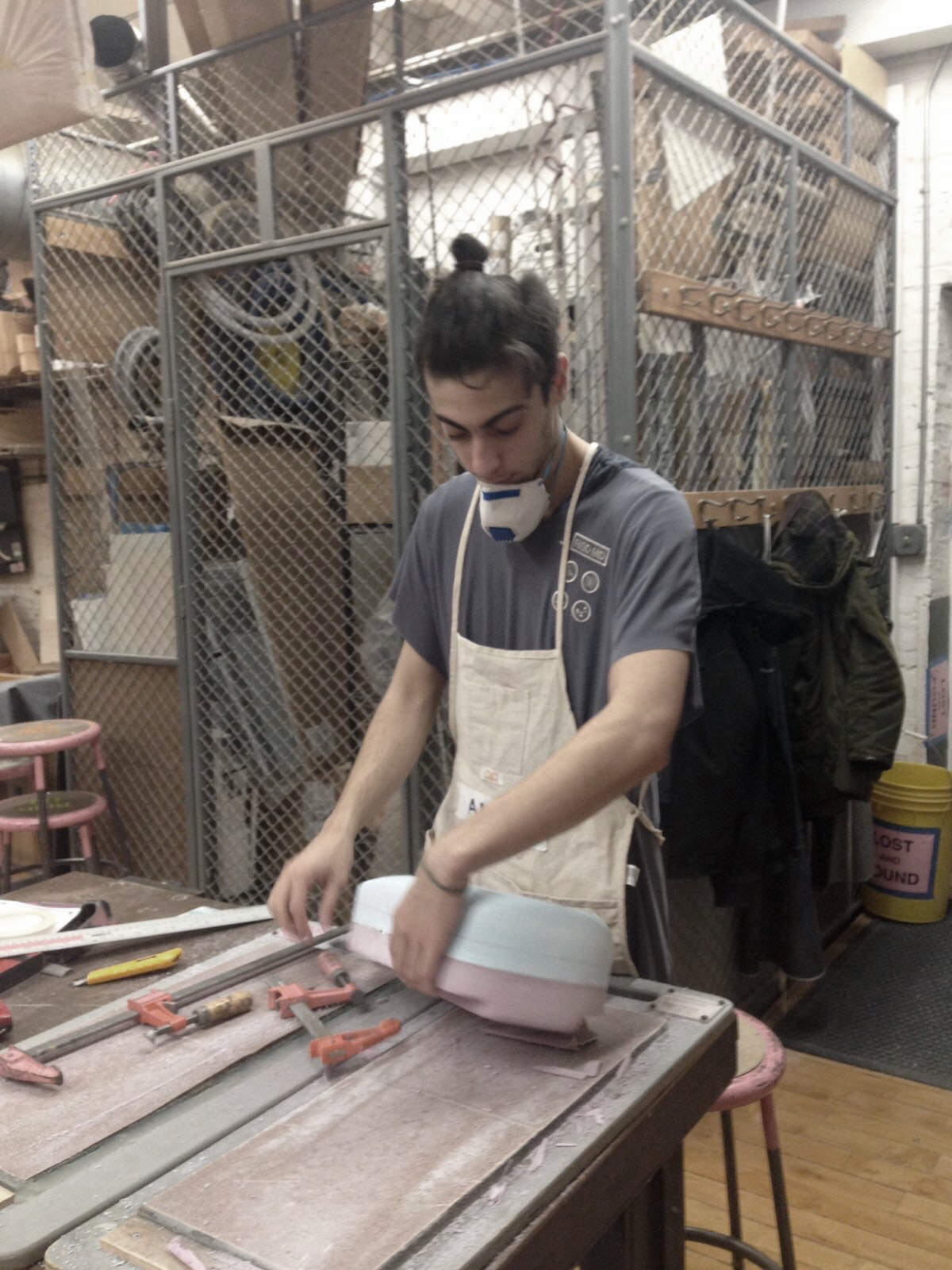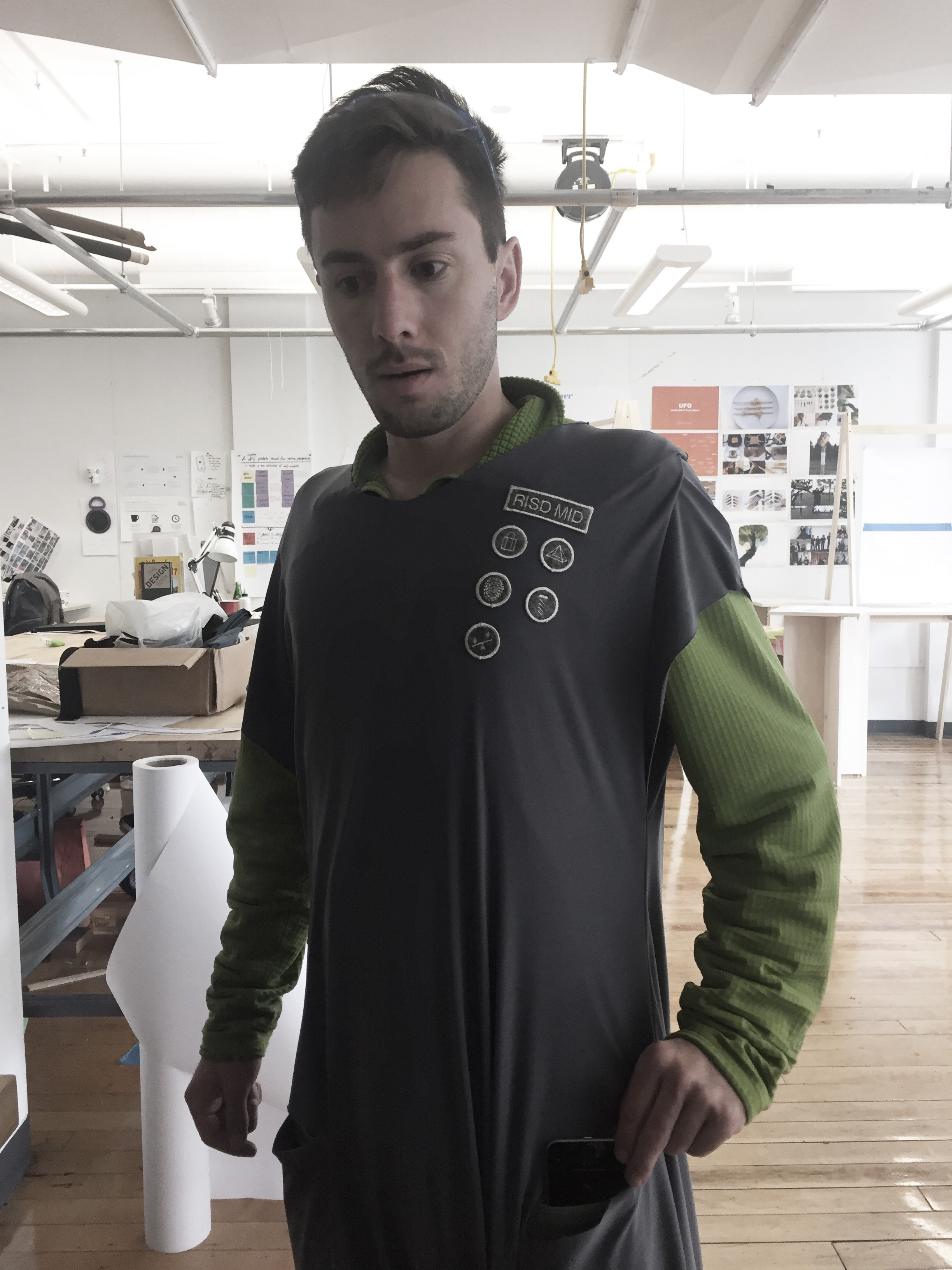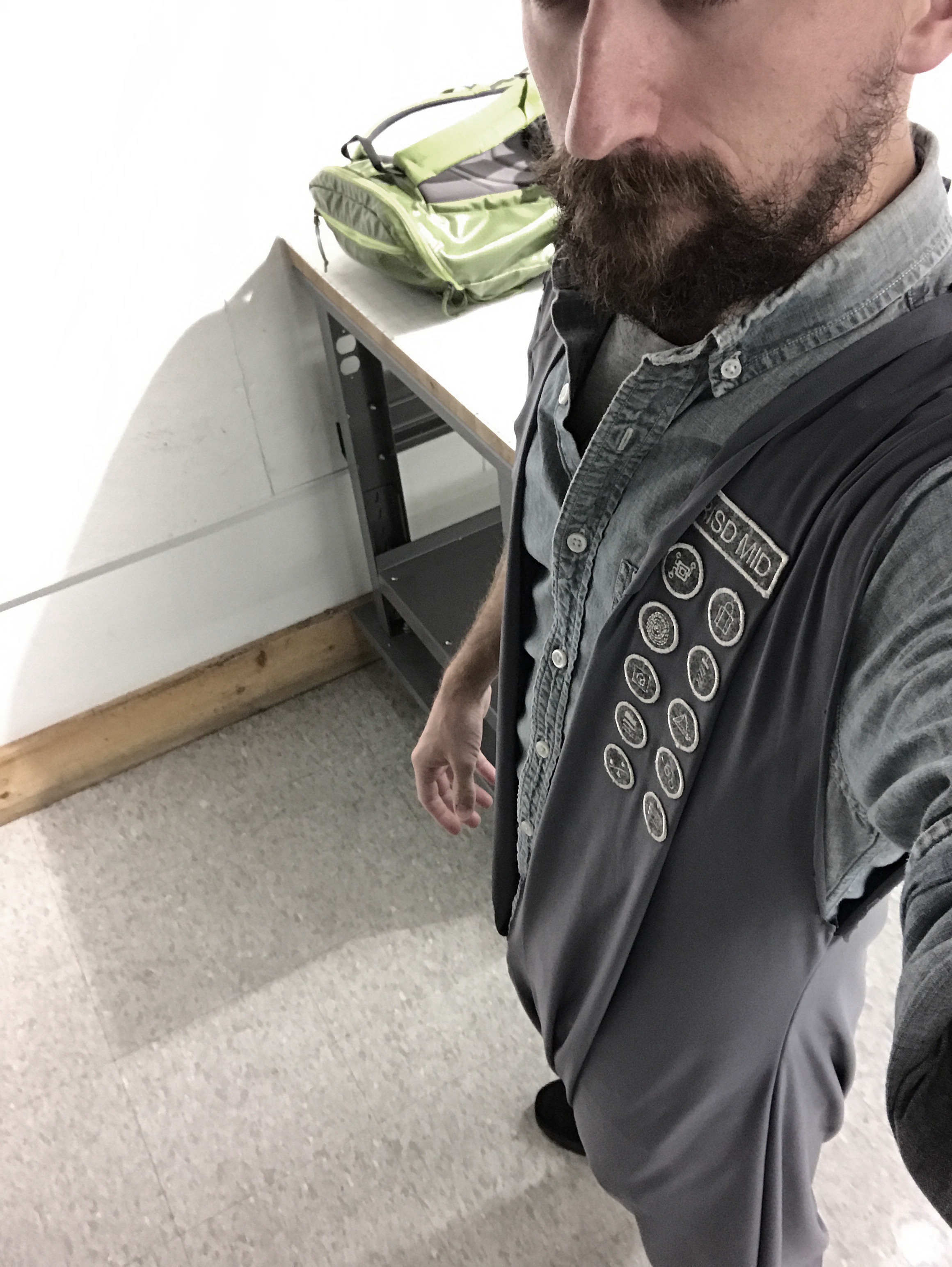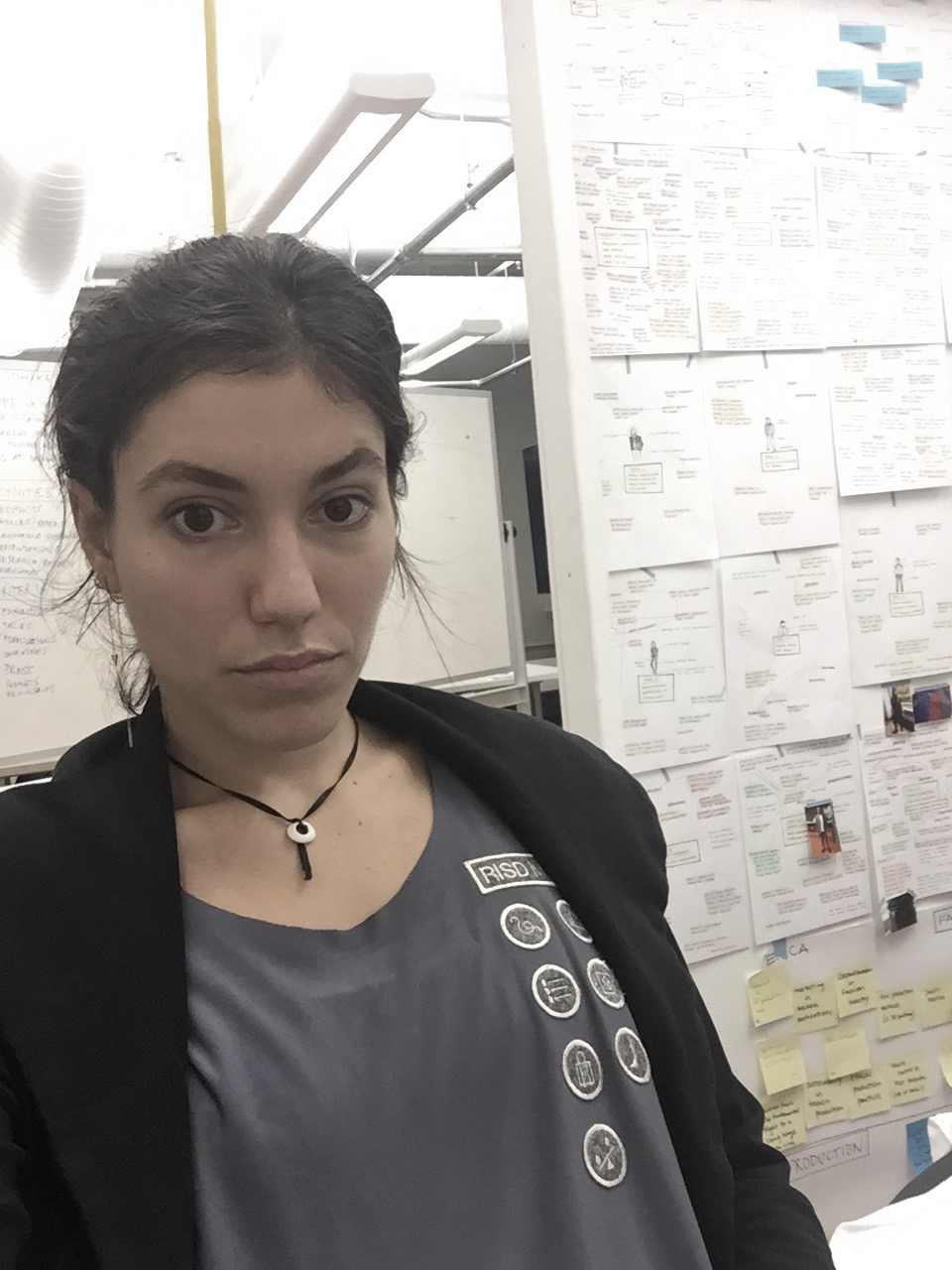
On uniforms
Some weird experiments I designed and conducted to learn about people, their quirks, and their feelings.
On uniforms
Testing the effect of a uniform

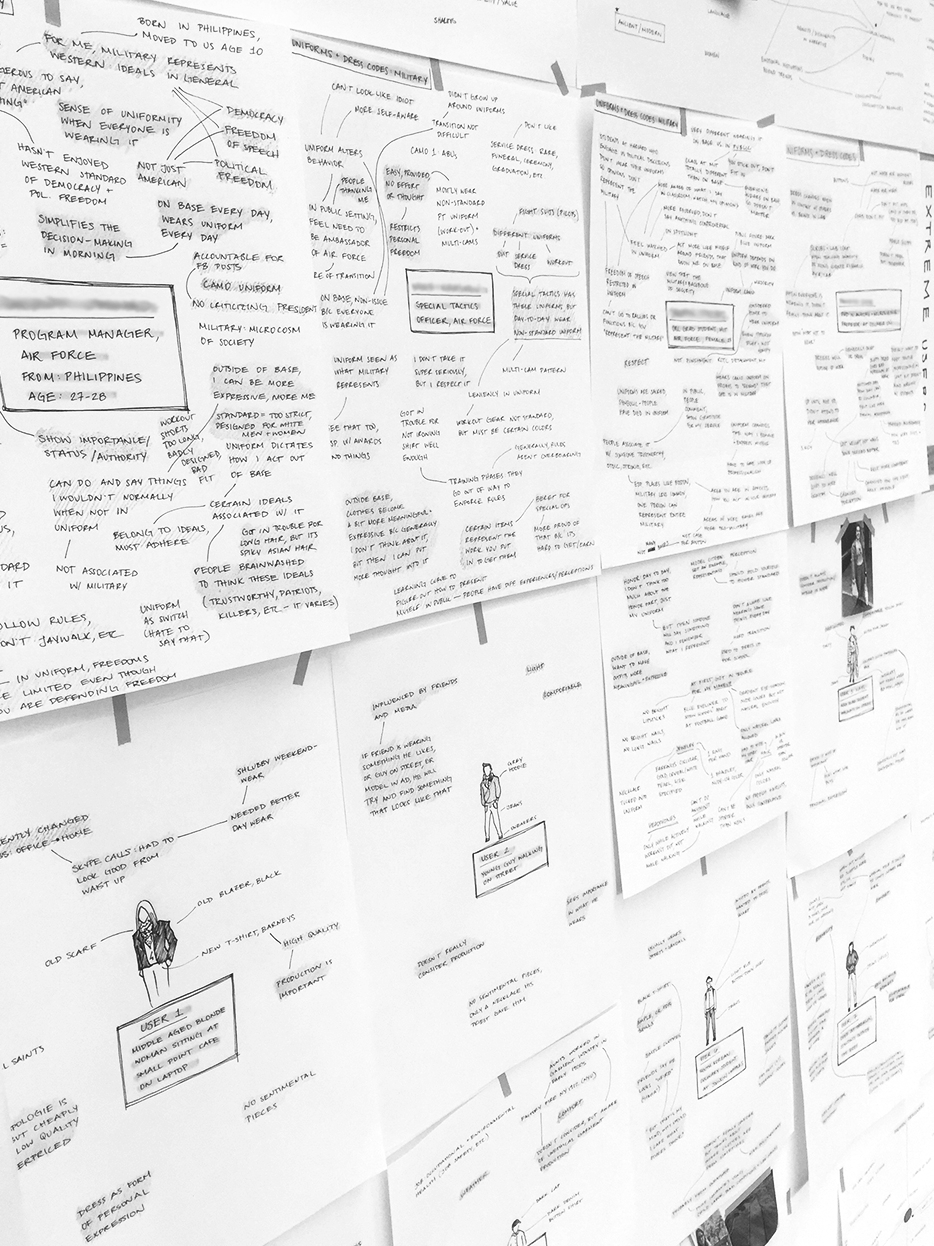
Why uniforms?
We all wear clothes. We all express ourselves through clothes in one way or another. We all feel the effects of clothes on both an internal and external level.
On the extreme end of the spectrum, uniforms are a powerful statement for both the wearer and its spectators.
In my ethnographic research, a few members of the U.S. Air Force admitted that they completely change their behavior, perception of self, and mentality when they are in uniform. That is so fascinating that an outfit has that kind of power.
Obviously, most people don’t wear strictly prescribed uniforms. However, quasi-uniforms are most definitely adopted by groups of people. Societal and cultural norms are translated into unwritten dress codes, and our human tendency to connect to others makes us prone to dress alike, consciously or subconsciously.
In order to study the effects of dress codes, I began by designing and conducting an experiment that tested the effects of a strict uniform with my peers from RISD.
So, I made some uniforms…
…and asked my classmates to wear them.
I presented the garments as the official RISD MID uniforms to a few of my peers and instructed them to wear them at all times for a few consecutive days. The uniforms had embroidered skill badges, indicating to others which skills the MID candidate had been trained in.
They reported back with selfies and plenty of feelings on their experiences.
Observations
Some of my classmates did not want to participate, claiming that not wearing their own clothes would negatively affect their productivity.
Some experienced discomfort wearing a “non-generic” outfit because of the extra attention. Others used it to make a statement in certain situations (to be left alone in a crowded place, or to look confident in front of an accomplished artist)
Participants customized their uniforms to make them more unique
Insights
Our clothes can help us enter different mindsets. In fact, they are such effective tools of transformation, people are reluctant to break out of their comfort zone.
In addition to having an emotional effect on them, participants felt their non-generic outfits had a great affect on how others perceived them, which in turn made them more self-conscious of their own behavior.
In some cases, uniforms actually help assert identity. They serve as a baseline and the smallest of differences between them become magnified indicators of who the wearer is.
Phase 2: A fashion designer’s approach to a uniform
I wanted to test my last insight from the previous uniform experiment; that a uniform can actually help assert identity because differences are magnified.
So I ran another experiment.
I gave some apparel students a striped shirt and presented it as if it were the new RISD Apparel Department uniform. I tasked them to customize the garment to make it more reflective of who they are as individuals.

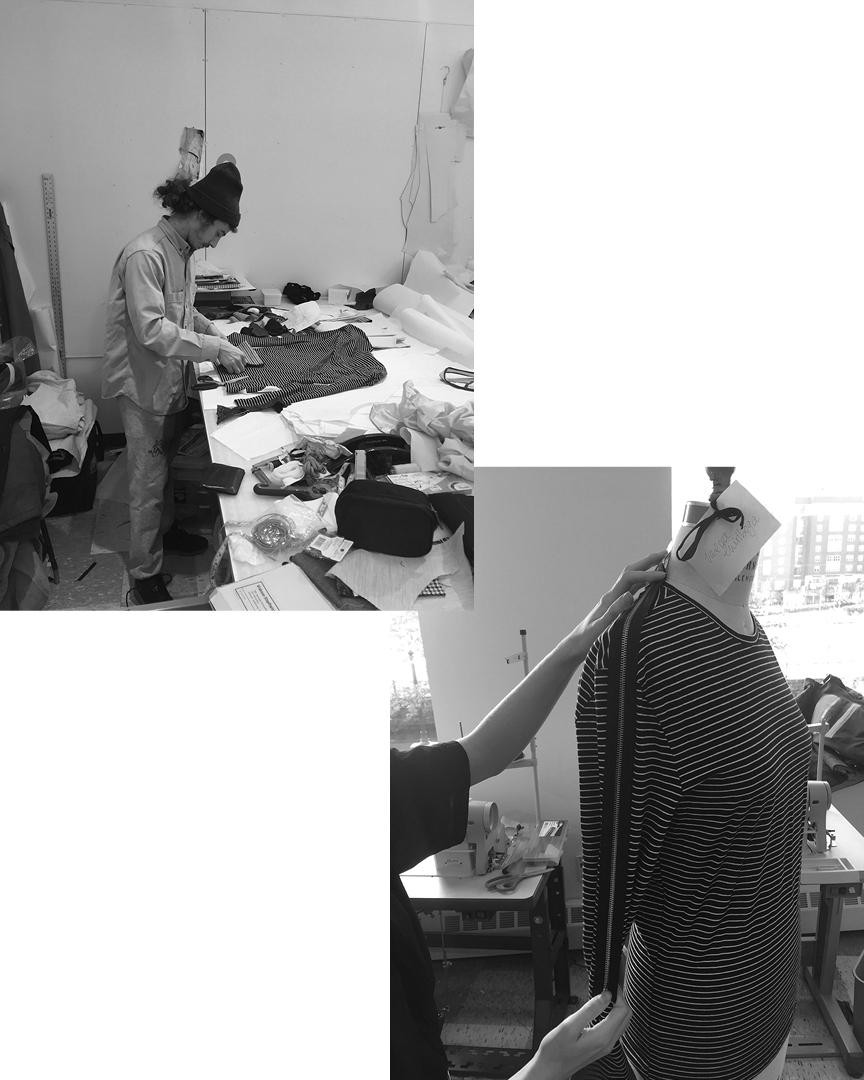
Immediately, their personalities came through in their customized garments. They were excited to see how different the results were despite having started with the same shirt.
Insight: A uniform acts as an effective baseline for individual customization.









